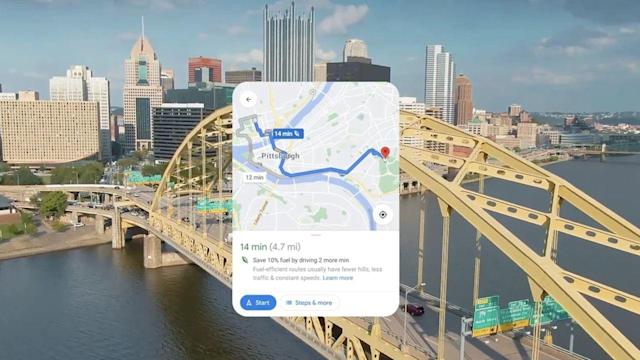Google unveiled a new suite of sustainability features that give consumers information so they can choose to reduce their GHG emissions as part of its goal to enable a “billion sustainable actions” by 2022. This is part of Google’s move towards its goal of becoming a company that runs on 100 % carbon-free energy by 2030.
Notably, Google Maps will show the most eco-friendly travel route; Google Flights will display various flights’ CO2 emissions; and the Google hotel search will show whether a hotel has sustainability commitments and/or independent environmental certifications.
Google aims to enable a “billion sustainable actions” by 2022, said Kate Brandt, Google’s chief sustainability officer. Several of the steps went into effect across the United States early October 2021. These include:
- Showing the most eco-friendly route in Google Maps and defaulting to it when the estimated travel time is comparable to other, more fuel intensive options. This feature was developed in partnership with the Energy Department’s National Renewable Energy Laboratory in Colorado.
The feature uses metrics like road congestion and incline to calculate the route that will burn the least fuel. “We believe this feature will have the same impact next year as taking over 200,000 cars off the road,” said Sundar Pichai, CEO of Google and Alphabet, in a video presentation.
- Google Flights is surfacing more sustainable choices as well. Displaying the carbon emissions of various flight options when using the Google Flights search tool. Its metrics are both seat-specific and flight-specific. A first or business class seat has a higher greenhouse gas footprint than a coach seat does because it takes up more space.
The flight search will label flights with a green badge that have much lower emissions than other flights on the same route.
Promoting Green Hotels
In the travel category, the company’s hotel search now shows if a hotel has made sustainability commitments and whether they have eco certifications from independent organizations. Hilton and Accor have already started adding this information to their global hotel portfolio.
Google will also surface the most cost-effective and sustainable options when you search for energy-intensive appliances, such as furnaces, dishwashers and stoves.
Green Search
Google is designing new landing pages for when people search for “climate change” and other basic climate science and policy questions. These pages will aim to surface the most reliable information from neutral organizations, such as the United Nations, company officials said.
However, ads will still be sold to appear next to these search results, which could still direct users to climate science misinformation from special interest groups. Also, the landing page step is not being applied to YouTube, home of many videos that question the proven findings of mainstream climate science. Google is also in the midst of testing a project that would use AI to fine tune the traffic lights across an entire city to favor a more efficient traffic flow. Testing has been taking place in Israel, and will soon expand to Rio de Janeiro.










